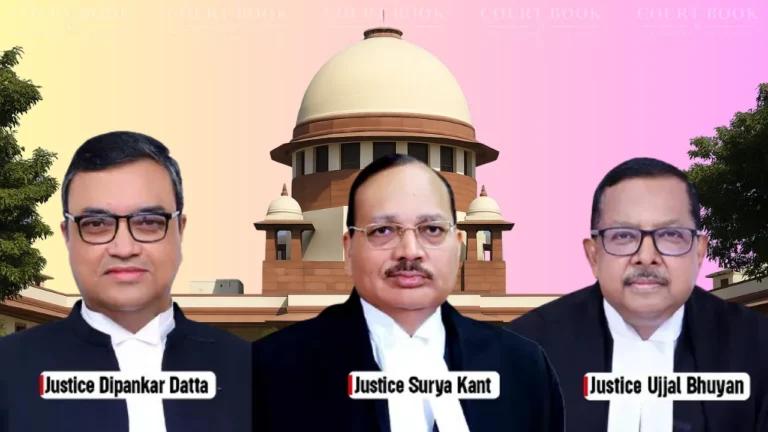In a significant judgment delivered on July 23, the Supreme Court held that any court order obtained by fraud is a nullity in the eyes of law and can be challenged in any court proceedings—even collateral ones—without necessarily filing an appeal or revision.
A three-judge bench comprising Justices Surya Kant, Dipankar Datta, and Ujjal Bhuyan invoked this principle to recall its own 2022 ruling in Reddy Veerana v. State of U.P., stating that the earlier order was obtained fraudulently.
“It is important to note that the principle of ‘fraud unravels everything’ is not limited to lower court rulings but applies to judgments of this Court as well, if justice so demands,” the bench stated.
The case has its roots in a 1997 joint land purchase by Vishnu Vardhan, Reddy Veerana, and T. Sudhakar. After NOIDA acquired the land in 2005, Vishnu alleged that Reddy manipulated the judicial system to declare himself as sole owner and receive the compensation—leaving out both co-owners.
Reddy, through misrepresentation and suppression of facts, managed to get a favorable High Court order in 2021. This was later affirmed by the Supreme Court in 2022, without arraying Vishnu as a party to the proceedings.
Reddy argued that, based on the doctrine of merger, the High Court order had merged into the Supreme Court’s decision, and hence no further appeal could be maintained. He claimed that the Supreme Court lacked any authority equivalent to a Letters Patent Appeal to review its own final decisions.
However, the bench rejected this argument.
“A judgment, decree or order obtained by playing fraud on the court is a nullity and non est in law. It can be challenged at any stage—even collaterally,” the Court quoted from the precedent A.V. Papayya Sastry v. Govt. of A.P. (2007).
The Court emphasized that even a non-party to the original litigation—like Vishnu—has the right to challenge a fraudulent order if he can show that the judgment adversely affected him.
“If the High Court order prejudicially affects a third party who was deliberately not arrayed as a respondent, and he later proves unawareness of the proceedings, he must be allowed to file an appeal,” the bench said.
It also observed that if the doctrine of merger was applied rigidly, Vishnu would lose the opportunity to seek relief before the High Court and would be left with only the narrow remedy of filing a curative petition before the Supreme Court.
“Review and curative petitions, though available under the SC Rules, 2013, do not offer the same scope as a regular appeal,” the Court clarified.
Since Vishnu had not been made a party earlier and presented a prima facie case of fraud, the Court granted him permission to file an appeal against the High Court’s 2021 order. The Court held that the High Court’s decision was not made on merits as it overlooked crucial facts, and the Supreme Court’s 2022 affirmation could not trigger the merger doctrine in such a case.
Read also: Supreme Court Seeks Independent Mechanism for BCI’s Law College Inspections
“If a stranger, dissatisfied with a judgment, makes out even a prima facie case that he is bound by or prejudiced by the order, there’s little reason to decline permission,” the Court noted, citing Jatan Kumar Golcha and State of Punjab v. Amar Singh.
In conclusion, the Court reaffirmed the position that fraud nullifies all judicial acts, including the application of the merger doctrine.
Accordingly, the Supreme Court set aside its own 2022 decision and the underlying High Court order, restoring the matter for fresh hearing before the High Court, ensuring all affected parties—Vishnu and Sudhakar—are impleaded.
Cause Title: Vishnu Vardhan @ Vishnu Pradhan vs. The State of Uttar Pradesh & Ors. (& Connected Cases)














